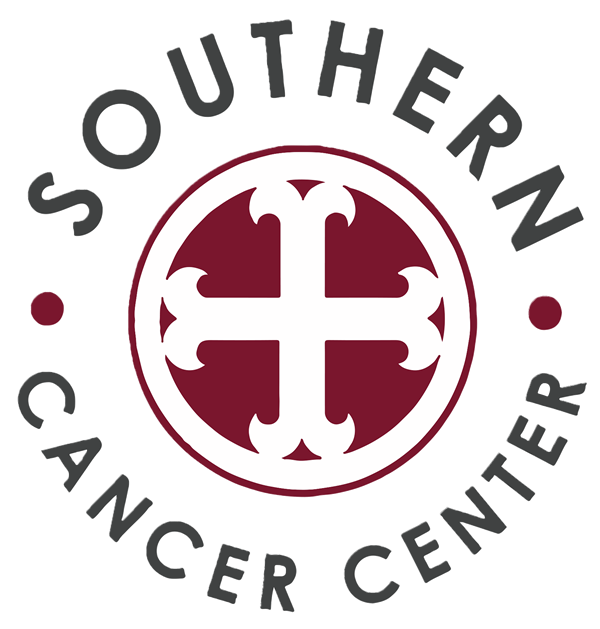
Colorectal cancer is becoming a growing concern for adults under the age of 55. It is the third most commonly diagnosed cancer in the United States, with an estimated 1 in 25 Americans developing the disease in their lifetime. And while the overall rate of colorectal cancer incidences has steadily declined since the early 2000s, this is mostly linked to people over the age of 65. Since 2011, colorectal cancer diagnoses have increased by 2 percent per year in people 54 years old or younger, accounting for 30 percent of all new colorectal cancer diagnoses.
While experts have not yet determined a cause for the increase in colorectal cancer risk among young adults, rising cases of early-onset colorectal cancer have made an impact on the approach to early detection of the disease. Younger adults diagnosed with colorectal cancer were more likely than older adults to be diagnosed with a later stage of the disease because they are under the recommended screening age. In 2021, the recommended screening age was lowered to 45. And for young adults under the age of 45, recognizing risk factors and early signs and symptoms is key.
“The earlier we can diagnose colorectal cancer, the earlier we can begin treating it,” said Dr. Brittany Case, medical oncologist at Southern Cancer Center. “Following screening recommendations and knowing what can increase your risk of developing colorectal cancer is crucial to managing your health.”
Know Your Family Health History and Genetic Risk
One of the strongest risk factors in developing colorectal cancer is a family history of the disease. People who have a first-degree relative (parent, sibling, or child) who has been diagnosed with the disease are 2 to 4 times more likely to develop the disease as compared to people with no family history of colorectal cancer. The risk increases with a family history of diagnosis before the age of 50 and when multiple relatives have been diagnosed.
Some inherited genetic conditions may also increase your risk of developing colorectal cancer. Conditions like Lynch syndrome and familial adenomatous polyposis are linked to an estimated 10 to 20 percent of early-onset colorectal cancers. For example, in patients with Lynch Syndrome, the lifetime risk of developing colorectal cancer is 40 to 70 percent, and diagnosis often occurs at a younger age, with a median age at diagnosis of 40.
Having a family history of cancer or an inherited genetic condition linked to cancer doesn’t guarantee you will develop colorectal cancer at a young age, or even in your lifetime. But this information can help you and your healthcare provider take proactive steps to manage your health, including early screening.
Know the Risks of Your Personal Health History
Several health conditions may increase the risk of developing colorectal cancer. Experts estimate that half of younger adults diagnosed with colorectal cancer also have a chronic condition that causes inflammation in the gut. This can include irritable bowel syndrome, Crohn’s disease, ulcerative colitis, and diabetes. A history of adenomatous polyps or a personal history of other cancers may also increase risk of colorectal cancer. Younger adults with these conditions should speak to their provider about their cancer risk.
Know Your Lifestyle Risk Factors
The American Cancer Society estimates that more than half of colorectal cancers are linked to modifiable risk factors. Incorporating healthy habits and lifestyle choices may reduce your colorectal cancer risk. In particular, diet, weight, and a sedentary lifestyle may be linked to early-onset colorectal cancer.
Diets that are heavy on red meat like beef, pork, or lamb and processed meat like hotdogs and sausages have been linked to an increased risk of colorectal cancer. However, diets that are high in vegetables, fruits, and whole grains may lower your risk of developing colorectal cancers. A higher body weight may also have a higher risk level. Eating well and maintaining a healthy weight can help improve your health while lowering your cancer risk. Speak to your doctor about any concerns you may have about your diet or weight so they can help you develop a healthy diet.
Regular physical activity can lower your risk of developing colorectal cancer. For most adults, 150-300 minutes of moderate activity per week or 75-150 minutes of vigorous activity is recommended. Moderate activity raises your heart rate and can include walking, biking, or even some housework. Vigorous activity uses large muscle groups and your heart and can make you sweat. This can include jogging, aerobic exercise, or swimming. You may also want to limit sitting and lying down.
Know the Signs and Symptoms of Colorectal Cancer
Because many early-onset colorectal cancers develop before the recommended screening age, it’s important for young adults to know the signs and symptoms of colorectal cancer. Knowing what to look for can help catch colorectal cancers at an early stage when they are most treatable. Signs and symptoms of colorectal cancer may include:
- A change in bowel habits, including diarrhea or constipation that lasts for more than a few days
- Stools that contain bright red or dark blood, or that look narrower than usual
- Abdominal pain or discomfort, such as frequent gas, bloating, fullness, or cramps
- Unexplained weight loss
- Fatigue
- Unexplained iron-deficiency
While these symptoms do not always indicate cancer, you should speak with your physician if your symptoms last for weeks, become more severe, or you experience any changes you are concerned about. Your doctor can determine whether you should have a colonoscopy or any other tests to determine the cause of the problem. Speak with your health care team about any symptoms you experience, including new symptoms and any change in symptoms.
If You are Concerned About Early-onset Colorectal Cancer, Talk to Your Physician
If you have questions about your risk level for developing colorectal cancer at a young age, talk to your healthcare provider. They can help you determine whether you need to begin early screening and help you determine any other precautions you may need to take to manage your health.
For more information about colorectal cancer, visit www.southerncancercenter.com/colorectal-cancer.
